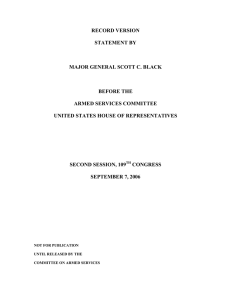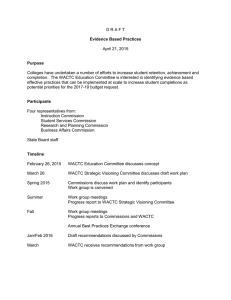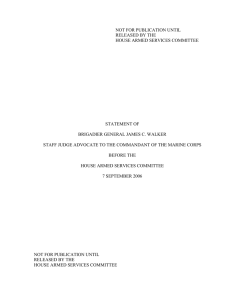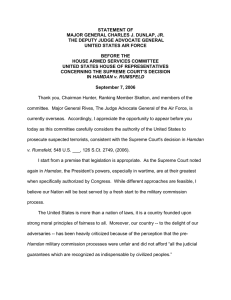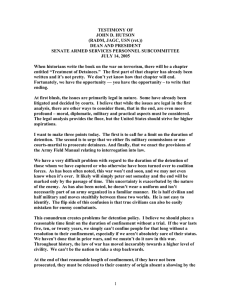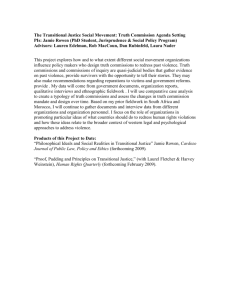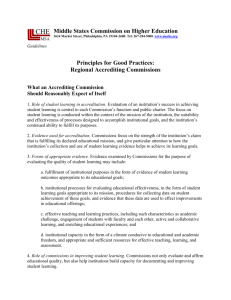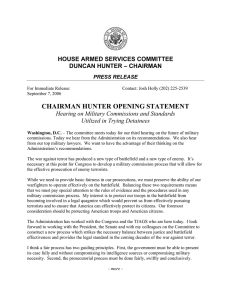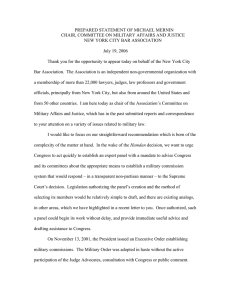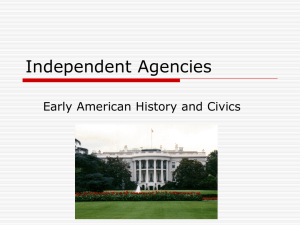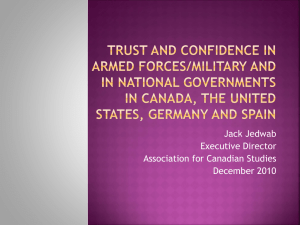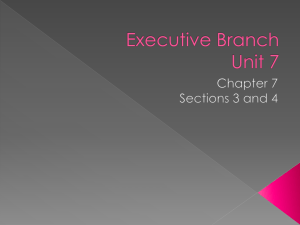NOT FOR PUBLICATION UNTIL RELEASED BY THE SENATE HOUSE ARMED SERVICES COMMITTEE
advertisement
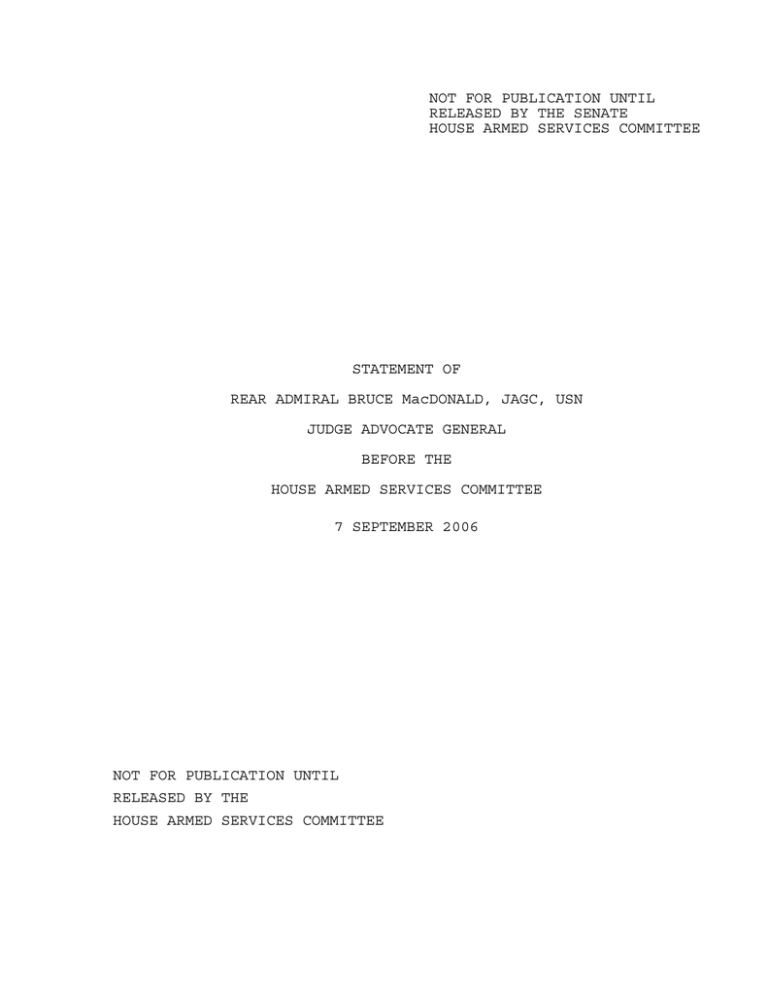
NOT FOR PUBLICATION UNTIL RELEASED BY THE SENATE HOUSE ARMED SERVICES COMMITTEE STATEMENT OF REAR ADMIRAL BRUCE MacDONALD, JAGC, USN JUDGE ADVOCATE GENERAL BEFORE THE HOUSE ARMED SERVICES COMMITTEE 7 SEPTEMBER 2006 NOT FOR PUBLICATION UNTIL RELEASED BY THE HOUSE ARMED SERVICES COMMITTEE Chairman Hunter, Ranking Member Skelton, members of the Armed Services Committee, good morning. Thank you for the opportunity to testify today on the subject of military commissions. Congress’ establishment of a permanent, legal framework for military commissions (a Code of Military Commissions) would be a welcome addition to American military jurisprudence. My view is that existing courts-martial rules are not practical for the prosecution of unlawful enemy combatants, now or in future conflicts. Yet, our military justice model (the Uniform Code of Military Justice) can provide an appropriate starting point for the drafting of Commission legislation. We have been working with others in the Executive Branch to formulate precisely such legislation. I recommend that legislation establish the jurisdiction of military commissions, set baseline standards of structure, procedure, and evidence consistent with U.S. law and the law of war, and prescribe all substantive offenses. The legislation should further authorize the President to promulgate supplemental rules of practice, similar to the Manual for Courts-Martial or, in this case, a Manual for Military Commissions. The legislation proposed by the President generally accomplishes those goals. Within that context, my personal opinion is that some of the most important legislative sections would provide for: • Jurisdiction that permits prosecution of all unlawful enemy combatants who engage in or attempt to engage in hostilities against the United States. 1 • Independent military judges who preside and have authority to make final rulings on all matters of law. • Defense counsel with an independent reporting chain of command, free from both actual and perceived influence of prosecution and convening authorities. • Introduction of hearsay evidence so long as the evidentiary standard is clarified to exclude information that is unreliable, not probative, unfairly prejudicial, confusing, or misleading, or when such exclusion is necessary to protect the integrity of the proceedings. Such an approach would be consistent with the practice of international war crimes tribunals supported by the United States in Rwanda and the former Yugoslavia. • The presence of the accused, perhaps crafting a process similar to Military Rule of Evidence 505, which permits a military judge to conduct an in camera, ex parte review of the Government’s interest in protecting classified information and encourages the substitution of unclassified summaries or alternative forms of evidence in lieu of the classified information. I and other military lawyers have worked with many others in the Administration to incorporate these ideas into the draft legislation recently submitted before you. The draft legislation reflects many of our comments, although there are some issues, particularly the use of classified evidence, where I would stand by the approach similar to that taken by the 2 Uniform Code of Military Justice. It is Congress that will make the final decision on these issues, however. I am confident in so doing that we can achieve the necessary and appropriate balance between affording an accused the judicial guarantees recognized as indispensable by civilized peoples on the one hand, and our valid national security interests on the other. Thank you again for this opportunity to appear today. I look forward to answering your questions and working with the Committee on this important endeavor. 3
